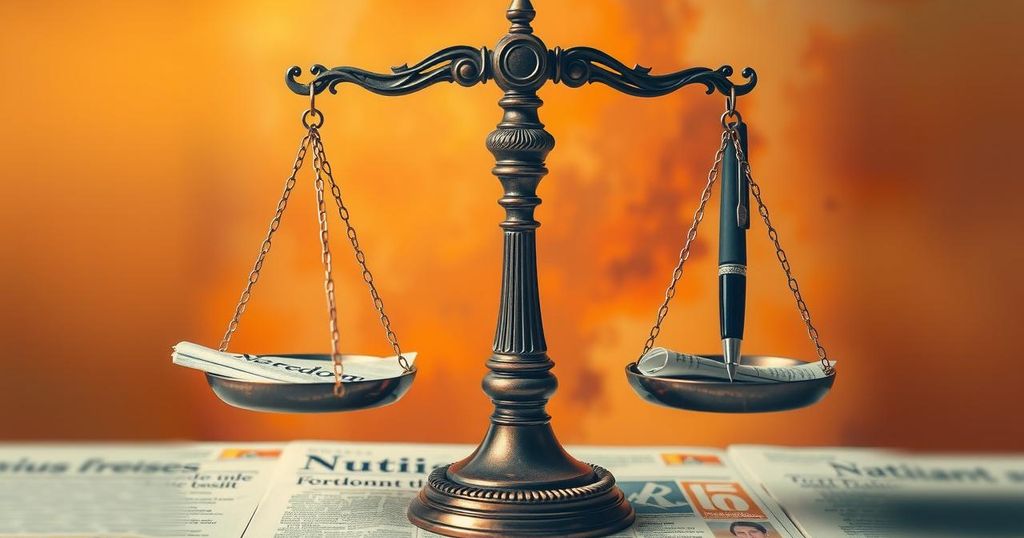Media Lobby Groups Demand Release of Detained Zimbabwe Independent Editor

- Gender and Media Connect demands the release of Faith Zaba.
- Zaba was arrested for a satirical article undermining presidential authority.
- Concerns about press freedom are growing in Zimbabwe.
- Patience Zirima speaks out on the significance of Zaba’s arrest.
- Media Alliance warns of shrinking democratic space in Zimbabwe.
Call for Press Freedom and Women’s Rights
Advocacy for the release of Faith Zaba, the editor of the Zimbabwe Independent, is gaining momentum following her arrest on charges that have drawn significant media attention. Zaba was apprehended on Tuesday after her newspaper published a satirical piece criticizing Zimbabwe’s leadership role within the Southern African Development Community. This article, which some claim undermines the authority of the President, has now led to a court appearance where her bail application was postponed, indicating a troubling trend regarding press freedom in the nation.
Concerns Raised by Gender and Media Connect
The Gender and Media Connect (GMC), a group focused on women’s journalist rights, is leading the charge in calling for Zaba’s immediate release. National Director Patience Zirima highlighted the implications of her arrest, noting how it sends a negative message to journalists, especially female reporters. “Her status as one of the few women editors in Zimbabwe makes this case particularly alarming. Zaba’s targeting for simply doing her job signals a backward step for both women’s rights and broader media freedom, which is already under threat,” Zirima articulated.
Growing Threat to Journalistic Integrity
Disappointment regarding Zaba’s arrest is echoed by Nigel Nyamutumbu, the National Coordinator of the Media Alliance of Zimbabwe. He pointed out that her arrest showcases the alarming trend of diminishing media freedom within the country, stressing that the situation may be indicative of a broader issue regarding democracy. Nyamutumbu elaborated, stating that despite the supposed repeal of repressive laws, journalists continue to face safety compromises. “The democratic space is shrinking, and solidarity is increasingly essential for the protection of press freedom,” he concluded, referring to the need for unity among media professionals in these troubled times.
In summary, Faith Zaba’s arrest has sent ripples through the journalism community, highlighting serious concerns related to press freedom in Zimbabwe. Advocacy groups are rallying for her immediate release while decrying the challenges faced by women in the media. With voices like those of GMC and the Media Alliance of Zimbabwe, there is a renewed urgency for protecting journalists’ rights and ensuring freedom of expression in the country.





